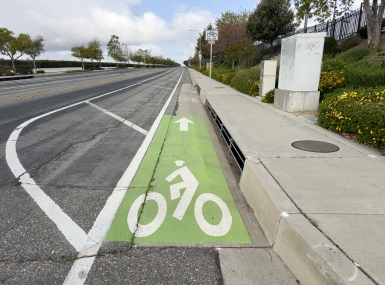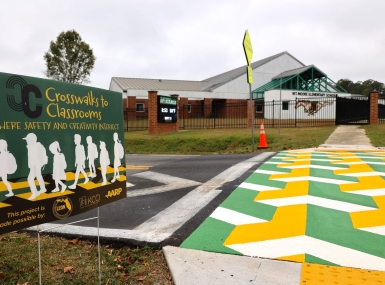Upcoming Events
Related News

Key Takeaways
President Biden was set to sign the bipartisan Infrastructure Investments and Jobs Act (H.R. 3684), a $973 billion comprehensive infrastructure package passed by the U.S. House of Representatives Nov. 5 that includes $550 billion in new investments for transportation, water, power and energy, environmental remediation, public lands, broadband and resilience. Passage of the bill follows over six months of negotiations between Congress and the White House and represents a major victory for America’s counties that will help us rebuild our nation’s infrastructure and economy.
“Counties applaud the U.S. House and Senate for passing this much-needed, bipartisan infrastructure bill,” said NACo Executive Director Matthew Chase. “We appreciate our House and Senate partners who worked with us to develop this comprehensive legislation. It will help rebuild our nation’s infrastructure and economy by investing in locally owned infrastructure and preserving local decision-making.”
Learn More
Read NACo’s executive summary of the infrastructure bill
See the latest federal transportation and infrastructure policy proposals affecting counties
Learn more about NACo’s transportation and infrastructure priorities
The bill would accomplish many longstanding county priorities, including:
- A new, long-term surface transportation reauthorization for highway, bridge and transit systems
- Meaningful commitments to transportation safety and project streamlining
- Critical new investments in water, stormwater and broadband projects
- Increased investments in off-system bridges – including county owned bridges that are not part of the federal-aid highway system
- Raising the cap on Private Activity Bonds, which will facilitate the construction of infrastructure projects, and
- An extension of the Secure Rural Schools program for timber harvest counties for three years.
While the legislation will invest heavily across the nation’s core infrastructure sectors, just over half of the bill’s new investments — roughly $284 billion — will go toward all modes of transportation. In addition to providing authorizations for a number of programs, the legislation will also make supplemental — and in some cases, multi-year — appropriations to several federal agencies, including just over $100 billion in competitive grant opportunities that counties can apply for directly through the U.S. Department of Transportation.
NACo played an integral role in securing many provisions included in the final bill, which will help counties fulfill vast infrastructure responsibilities.
Even after passage of the bill, infrastructure remains at the forefront of the legislative agenda in Washington, D.C., where lawmakers are additionally considering critical pieces of legislation, such as the bipartisan S. 3011/H.R. 5735, the State, Local, Tribal, and Territorial Fiscal Recovery, Infrastructure, and Disaster Relief Flexibility Act (S. 3011/H.R. 5735) and an FY 2022 reconciliation package.
S. 3011, which passed the U.S. Senate unanimously earlier this month, would provide additional flexibility for the $350 billion Coronavirus State and Local Fiscal Recovery Fund (Recovery Fund) authorized under the American Rescue Plan Act for use toward transportation and infrastructure projects. Specifically, the legislation would allow counties to allocate up to $10 million of Recovery Funds for government services and the greater of $10 million or 30 percent for transportation and infrastructure projects and to address natural disasters.

Attachments
Related News

Congress reintroduces bipartisan legislation for bike and pedestrian safety funding expansion
In March, lawmakers in the House and Senate reintroduced the bipartisan Sarah Debbink Langenkamp Active Transportation Safety Act. The legislation honors Sarah Debbink Langenkamp, a former U.S. diplomat and mother of two who was tragically killed while biking home in Bethesda, Md., just weeks after being evacuated from Ukraine in 2022.

FY 25 Update: USDOT announces $982 million through Safe Streets and Roads for All Grant Program
On February 21, the U.S. Department of Transportation announced the availability of $1.2 billion through the Safe Streets and Roads for All competitive grant program in Fiscal Year 2024 for transportation safety planning or construction projects.

County promotes traffic safety with colorful crosswalks
Leon County, Fla., created elevated, colorful crosswalks to decrease speeding and increase pedestrian safety.